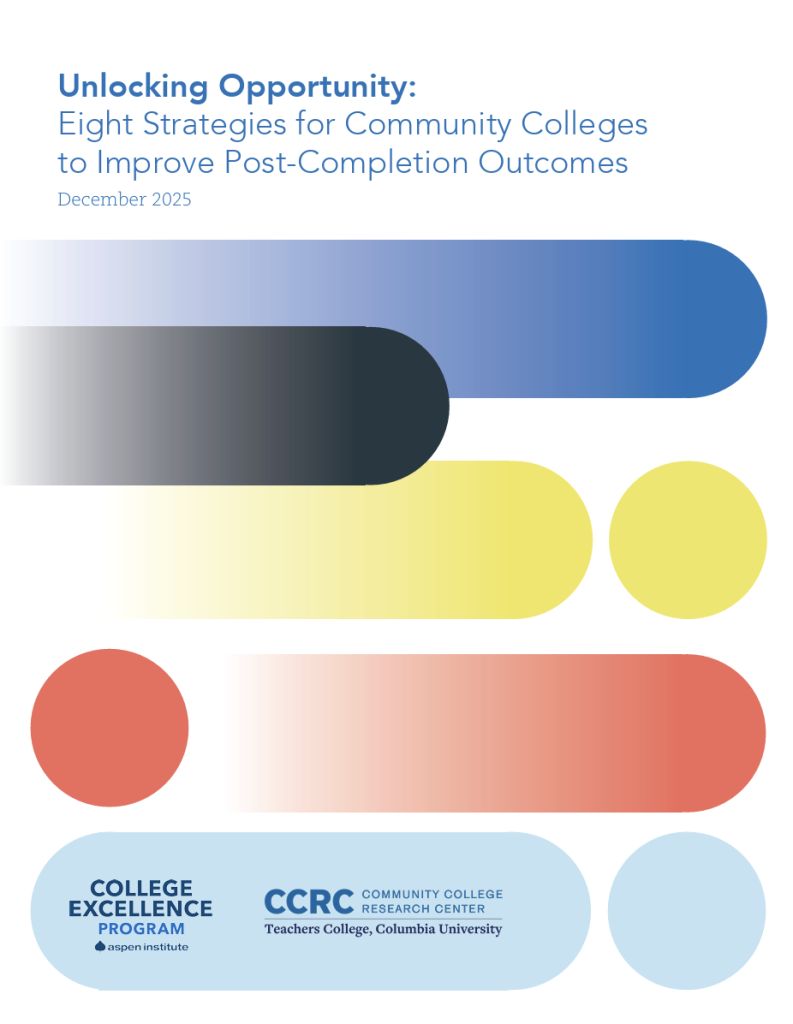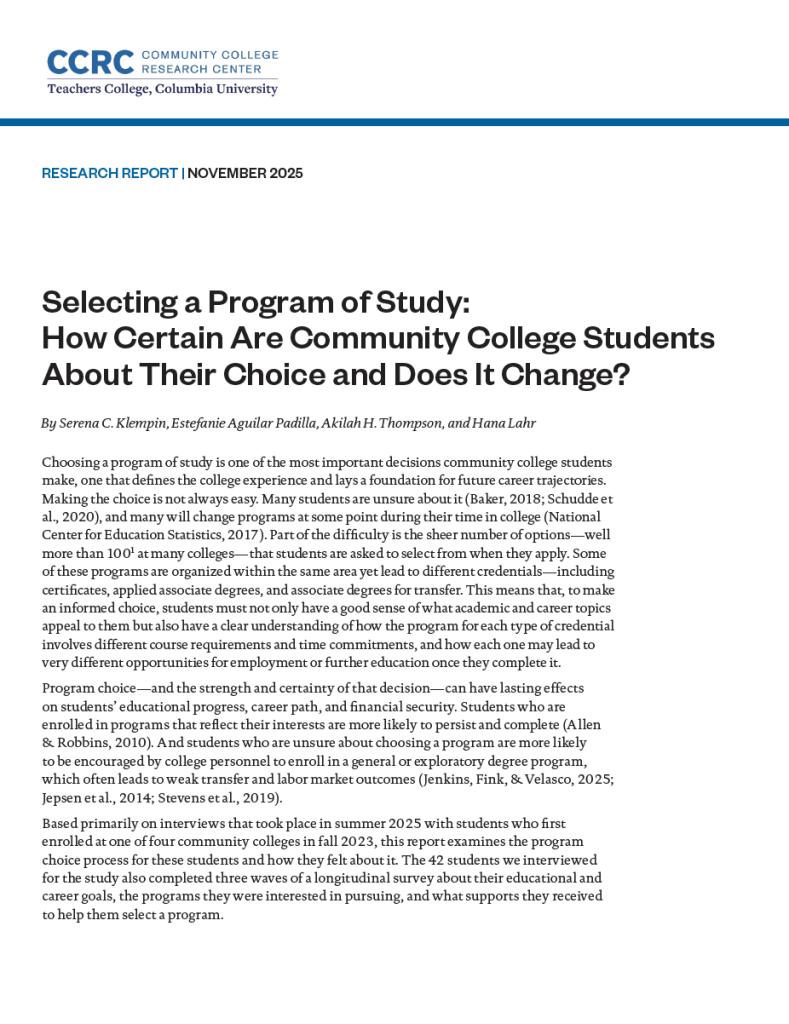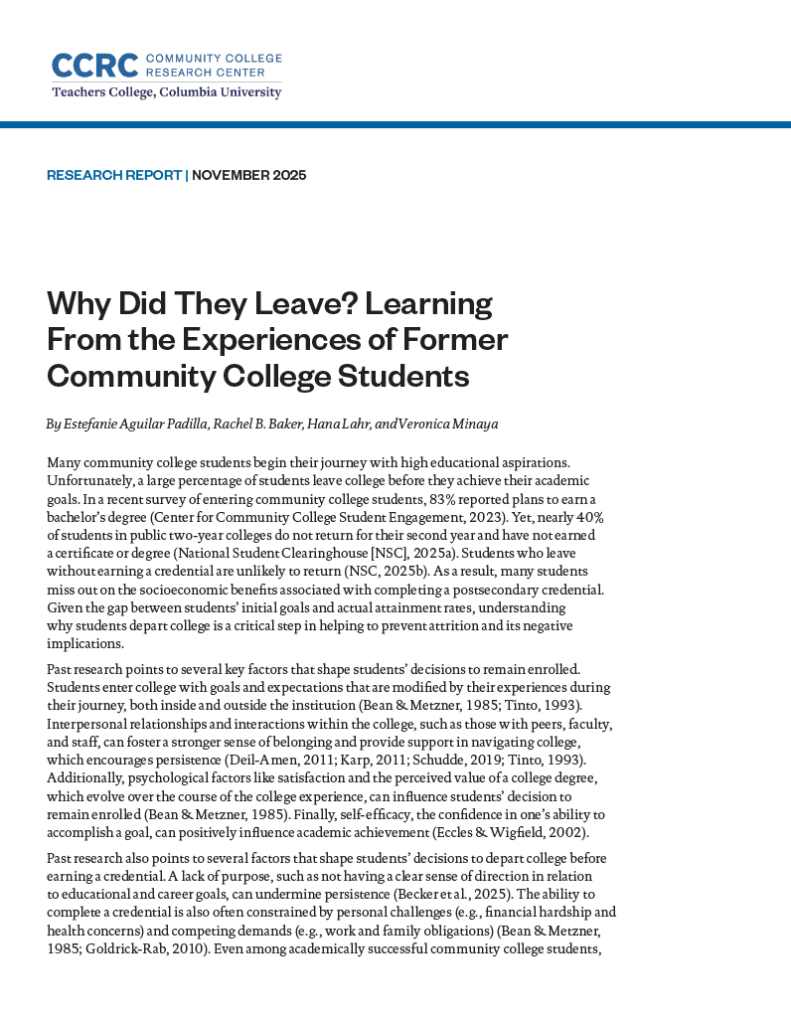Unlocking Opportunity: Eight Strategies for Community Colleges to Improve Post-Completion Outcomes

This practice guide builds on the work of colleges in the Unlocking Opportunity Network by offering practical strategies that can help more students graduate with credentials that lead directly to good jobs or transfer and successful attainment of a bachelor’s degree.
Selecting a Program of Study: How Certain Are Community College Students About Their Choice and Does It Change?

This report discusses the program choice process among 42 student interviewees; it describes factors that influenced their choice and how their choice often changed, and it offers recommendations to better support students in selecting a program.
Why Did They Leave? Learning From the Experiences of Former Community College Students

Based on survey findings from 480 former students who stopped out of community college before the start of their second year, this report sheds light on the experiences of this population and their reasons for leaving college.
“Waiving” Goodbye to Placement Testing: Broadening the Benefits of Dual Enrollment Through Statewide Policy

Using interview data from program leaders and statewide student data, this paper examines the implementation and estimates the effects of Ohio’s Innovative Programs, a policy aimed at expanding access to dual enrollment for underserved high school students.
What’s the Value of a Master’s Degree?

Using administrative data from Ohio, this Third Way brief compares master’s degree completers’ earnings before and after graduate school and finds that, on average, earning a master’s degree increases earnings, though returns vary by field and student demographics.
